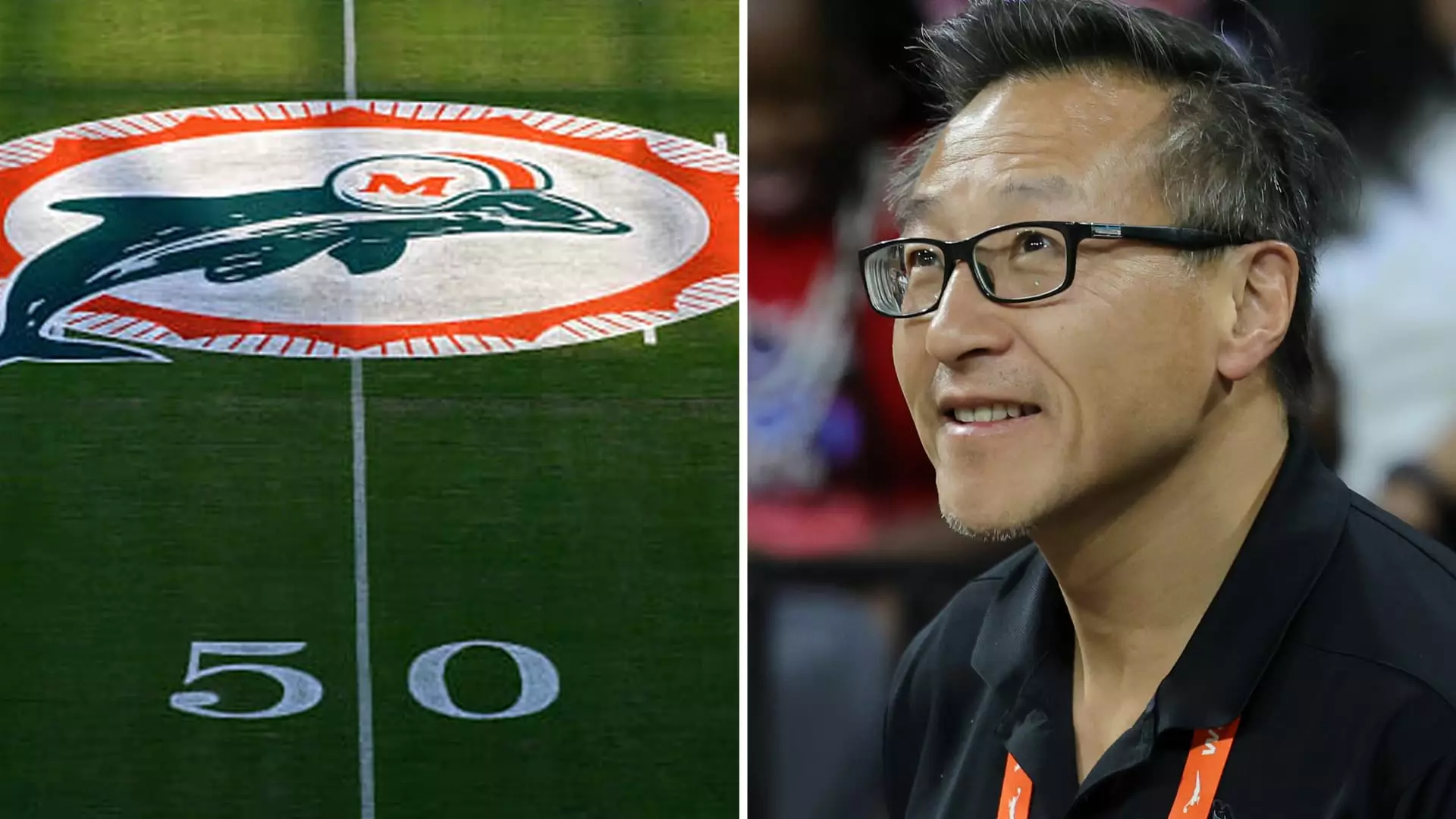In a development that underscores a significant trend in sports ownership, the Miami Dolphins are nearing a deal that would sell a minority stake to Ares Management, a private equity powerhouse, along with billionaire Joe Tsai, known for his extensive sports portfolio. This potential deal marks a turning point, not only for the Dolphins but also for the broader National Football League (NFL), as it introduces private equity investments in a landscape that has traditionally been closed off to such financing.
For many observers, the NFL’s recent decision to allow private equity investments reflects a necessary evolution within professional sports. The approval of select firms to acquire up to 10% stakes is unprecedented and signifies an acknowledgment that team ownership values have surged to astronomical heights. The Dolphins, valued at approximately $7.1 billion, excluding their home base, Hard Rock Stadium, serve as a benchmark for the growing financial clout of sports franchises. This proposed deal estimates the combined value of the Dolphins franchise along with critical assets like the operating rights to the Miami Grand Prix and approximately half of the Miami Open at $8.1 billion, showcasing the multifunctional revenue streams that modern team ownership encompasses.
The nuance of these negotiations highlights an ongoing trend among sports owners—integrating control over their venues to bolster revenues. The distinction of owning both the team and its stadium allows owners like Stephen Ross, who bought the Dolphins in 2009 for $1.1 billion, to amplify income through various events, thereby fortifying their financial positions.
Stephen Ross’s motivation to sell a minority stake appears to align with strategic objectives beyond immediate financial gain. By channeling capital from the sale into expanding his South Florida real estate investments, Ross is positioning himself to capitalize on the booming real estate market while still retaining a significant level of control over the Dolphins. This strategic duality resonates within the business community, where diversification is often deemed essential for long-term sustainability.
As veteran owners like Ross embrace the concept of partial sales to private equity interests, a precedent begins to set within the league. Not only does this strategy provide liquidity for personal investments, but it also introduces financial allies who can potentially provide further capital for enhancements to team operations and facilities. The implications of this shift extend far beyond the Dolphins, potentially reshaping the investment landscape in the NFL and other professional sports leagues.
Another critical aspect of this evolving scenario is how it may influence fan engagement. With increasing discussions surrounding stadium investments, the role of fans as stakeholders in team identity becomes paramount. As ownership models evolve, franchise loyalty may be tested, particularly if new investors bring in fresh visions that do not align with the tradition and history upon which many teams have built their brands.
Moreover, the involvement of high-profile investors like Tsai raises questions about the influence that personalities with vast resources can exert on sports culture. Tsai, who owns multiple teams across various sports, including the Brooklyn Nets and the New York Liberty, embodies a modern approach to sports ownership that seeks to leverage cross-platform synergy. His participation in the Dolphins could herald new marketing strategies, heightened rivalry narratives, and enhanced promotional opportunities that thrill fans and generate additional revenue.
As the Miami Dolphins engage in these landmark negotiations to bring private equity into the fold, the implications for both the team and the NFL are profound. This convergence of traditional sports ownership with contemporary investment strategies may redefine how teams operate, derive revenue, and engage with their fanbases. The potential sale offers invaluable lessons in adaptability and innovation within a rapidly evolving market.
As sports landscapes continue to transform, so too will the relationships between teams, investors, and fans. The Miami Dolphins exemplify this shift, reflecting broader dynamics that underline the need for ownership structures to evolve in response to the increasing complexities of the sports economy. The future of NFL ownership is not only about profit margins but creating multifaceted assets that resonate deeply with communities and stakeholders alike.

